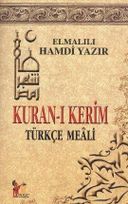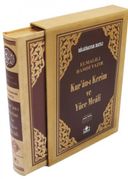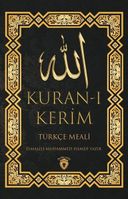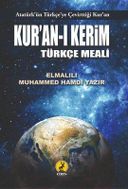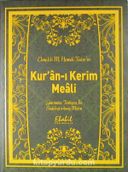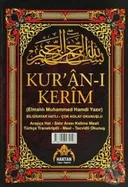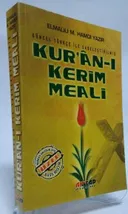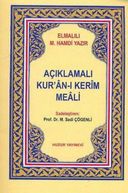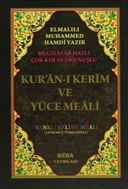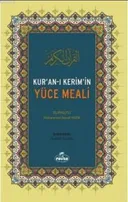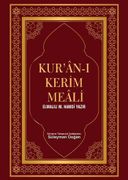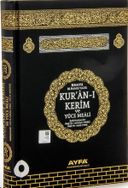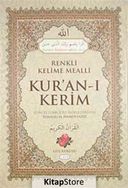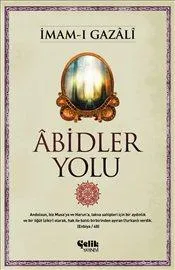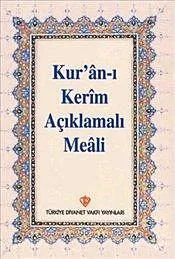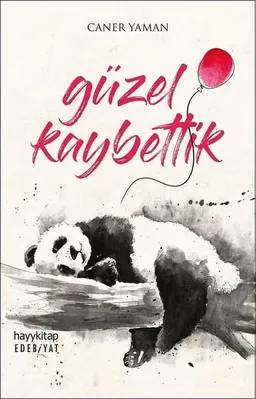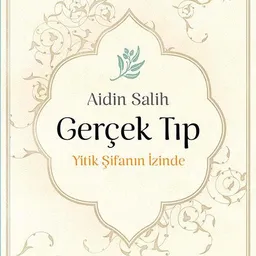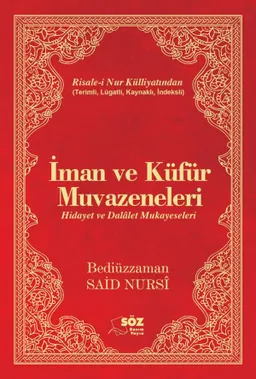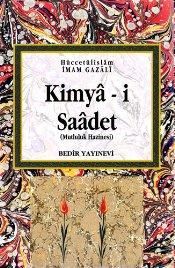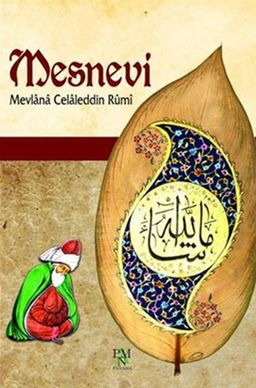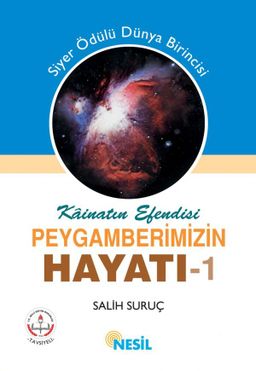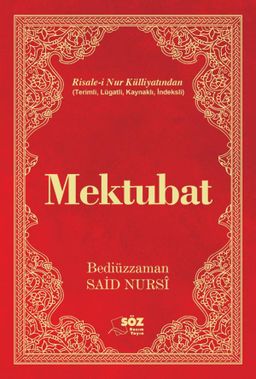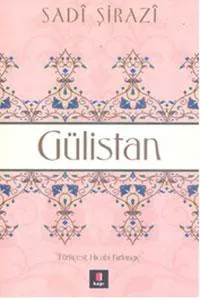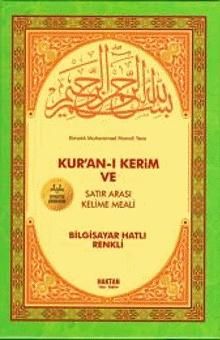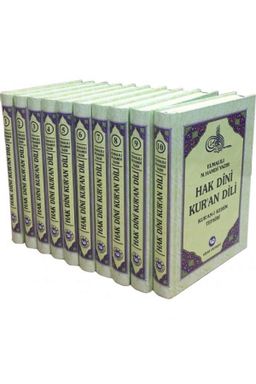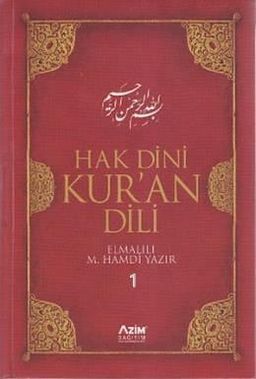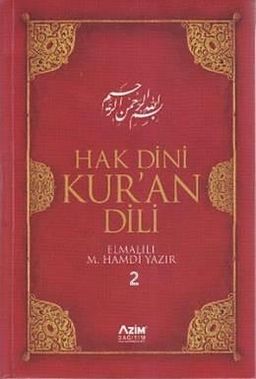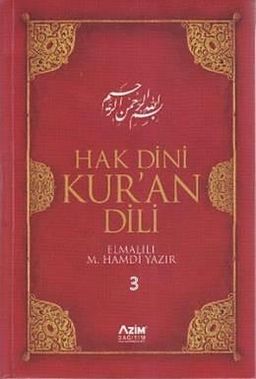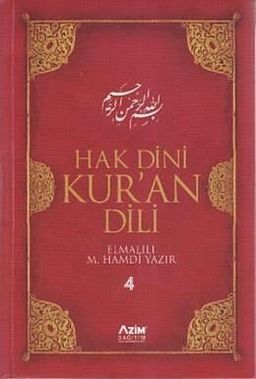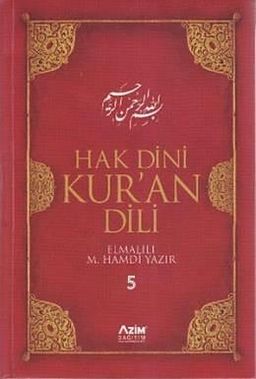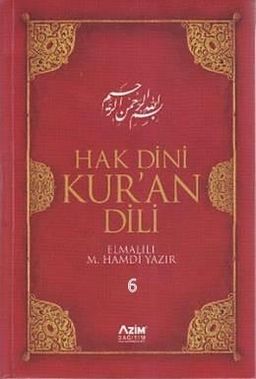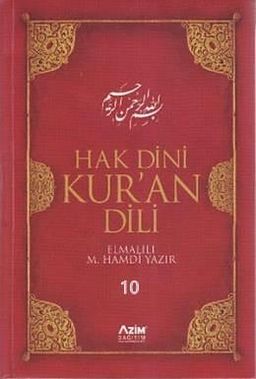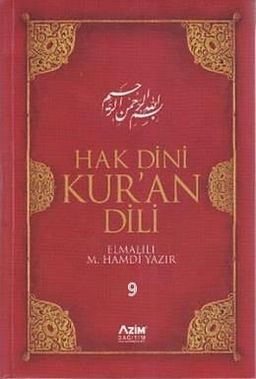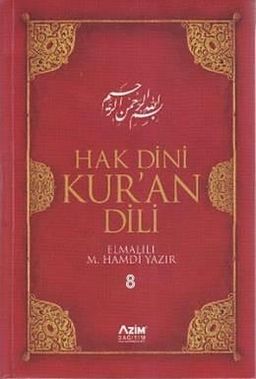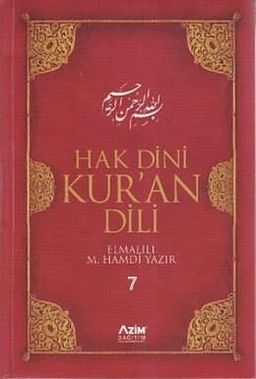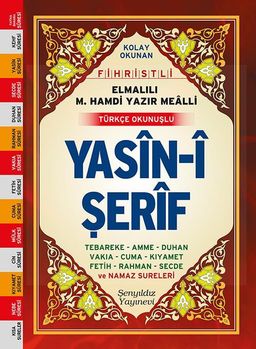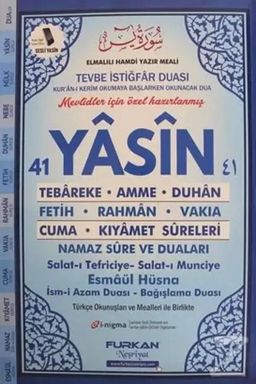About Kuran-ı Kerim Meali
Kuran-ı Kerim Meali subject, statistics, prices and more here.About
Author: Elmalılı Muhammed Hamdi Yazır
Estimated Reading Time: 11 hrs. 46 min.Page Number: 415Publication Date: 2013First Publication Date: 1999Publisher: Ayfa Basın Yayın DağıtımISBN: 9786055256289Country: TürkiyeLanguage: TürkçeFormat: Karton kapak
Other Editions
Kuran-ı Kerim Türkçe Meali
1,737 okunmaAltın Post Yayıncılık · July 2012 · 528 syf
Kur'an-ı Kerim ve Kelime Meali
557 okunma Merve Yayinevi · · 616 syf
Kur'anı Kerim ve Yüce Meali
312 okunmaMerve Yayınları · · 615 syf
Kuran’ı Kerim Türkçe Meali
242 okunmaDorlion Yayınevi · 28 May 2019 · 474 syf
Kuranı Kerim Türkçe Meali
139 okunmaCeren Yayıncılık · 2020 · 638 syf
Kuran’ı Kerim Türkçe Meali
126 okunmaEbabil Yayıncılık · April 2015 · 320 syf
Kur'an-ı Kerim
124 okunmaHaktan Yayınları · 30 July 2013 · 640 syf
Kur’an-ı Kerim Meali
119 okunmaAKitap · 2007 · 445 syf
Açıklamalı Kur'an-ı Kerim Meali
113 okunmaHuzur Yayınevi · 2015 · 448 syf
Kuranı Kerim ve Yüce Meali
104 okunmaSeda Yayınları · May 2013 · 624 syf
Kur'an-ı Kerim'in Yüce Meâli
98 okunmaRavza Yayınları · 7 April 2018 · 288 syf
Kur'an Kerim Meali
95 okunmaAlya Yayınları · 2016 · 287 syf
Kur'an-ı Kerim ve Türkçe Meali
81 okunmaTemel Neşriyat · 2000 · 606 syf
Kur'ân-ı Kerîm ve Yüce Meâli
80 okunmaAyfa Basın Yayın · 2016 · 624 syf
Kur'an-ı Kerim
65 okunmaTuva Yayıncılık (Duha Bilişim) · 2010 · 619 syf
Book Statistics
All statistics
Statistics of this edition
Reader Profile of the Book
Kadın% 56.0
Erkek% 44.0
0-12 Yaş
13-17 Yaş
18-24 Yaş
25-34 Yaş
35-44 Yaş
45-54 Yaş
55-64 Yaş
65+ Yaş
About the Author
Elmalılı Muhammed Hamdi YazırYazar · 31 books
This text has been automatically translated from Turkish. Show Original
Elmalılı Muhammed Hamdi Yazır, (b. 1878, Antalya - d. 27 May 1942, Istanbul), a cleric, translator and calligrapher who wrote one of the Turkish Quran commentaries.
He was born in 1878 in Elmalı district of Antalya. His family is originally from Burdur and his father is Hoca Numan Efendi. When he was still young, Numan Efendi left Yazır Village of Burdur's Gölhisar district (founded by Yazır Turkmens) and came to Elmalı, completed his education there and became the chief clerk of the Sharia Court. His mother is Fatma Hanım, the daughter of Esad Efendi, one of the scholars of Elmalı.
He had such a high level of knowledge that he could write poetry in Arabic and Persian as well as Turkish. However, he used plain Turkish in his writings. In addition, he also speaks French. "El-metalip ve'l-mezahip'l-mezahip" He has a book on the history of philosophy that he translated from French.
Muhammed Hamdi Yazır received his primary and secondary education at Rüşdiye School in Elmalı. After completing his memorization, he studied Arabic and came to Istanbul in 1895 with his uncle Hoca Mustafa Sarılar Efendi to learn Islamic sciences. He continued his lessons at the Beyazıt Mosque of Mahmud Hamdi Efendi from Kayseri. He took fiqh lessons from Oflu Mahmut Kamil Efendi. He received his permission by taking lessons from the leading and valuable teachers of the period.
He entered Mekteb-i Nuvvab and graduated from there with the first place and received the permission to be a judge. He started teaching students at Beyazıt Mosque in 1905 and continued this service until 1908. Meanwhile, he was included in the Letter Office in the Sheikh-al-Islam. On the other hand, he continued to teach Ahkam-ı Evkaf at Nuvvab and Mülkiye School, fiqh at Medrese-t-ül Vaizin, and logic at Süleymaniye Madrasa. He became a lecturer in 1908. He took calligraphy lessons from the famous calligraphers of the period, Sami Efendi and Bakkal Arif Efendi. He is the second person after Mehmet Akif Ersoy who was assigned by Mustafa Kemal Atatürk to interpret the Holy Quran in Turkish for the first time.
II. After the declaration of the Constitutional Monarchy, he entered the Parliament as Antalya deputy. Since Shaykh al-Islam did not give the fatwa, II. as the 1st Fatwa Emini. He wrote the fatwa required for Abdülhamit's dethronement in line with the wishes of the Committee of Union and Progress. Later, he continued his activities in the Freedom and Entente Party, which was on the opposing front. Later, he was appointed as a member of Dar-ül Hikmet-ül İslamiye (August 1918) and as the president of this institution in April 1919. He served as the Minister of Foundations in the cabinets of Damat Ferit Pasha. He was appointed as a member of the Notables Assembly in September 1919. He worked in the science branch of the Committee of Union and Progress.
In 1909, he taught Ahkâm-ı Evkâf and Arâzi courses at the Civil School, and in the same years, he taught "Fiqh" at the Mekteb-i Kuzât. gave lessons. Later, he was appointed as a member of Darü'l-Hikmeti'l-İslâmiye (High Advisory Board affiliated with Sheikhü'l-İslâmiye) and after a while, he was appointed as its president. After World War I, he served as the Minister of Foundations and during this time he became a member of the Notables Assembly.
Elmalılı Hamdi Yazır, who is also interested in the scientific investigation of existence and knowledge (Philosophy), has also translated the works of western writers. Elmalılı Hamdi Efendi, who showed a critical approach to the issues put forward in these works, tried to find solutions to the debates that took place between philosophy and religion. He stated that philosophers could not comprehend the truth, and defended the idea that the truth could be grasped and verified when reason and faith were integrated.
During the declaration of the Republic, he was teaching logic courses at Medrese-t-ül Mütehassisin. Although he was sentenced to death in absentia on the grounds that he was responsible for the decisions taken by these cabinets against the War of Independence due to his duty in the cabinets of Damat Ferit Pasha, he was also sentenced to death at the Ankara Independence Court, presided over by Kel Ali, the father-in-law of his nephew Emin Paksüt. After his trial, his innocence was determined and he was acquitted.
Elmalılı Hafız Muhammed Hamdi Yazır passed away on May 27, 1942 in Erenköy due to a long-lasting heart failure. His grave is in Sahrayi Cedit Cemetery.
His articles were published in Beyânül-Hak and Sebilürreşad magazines under the pseudonym Küçük Hamdi or Elmalılı Küçük Hamdi. In his commentary, he published his work under the signature of Elmalılı Hamdi Yazır.
Books
Kuran-ı Kerim Türkçe Meali
9.5/10
Kur'anı Kerim ve Satır Arası K...
9.7/10
Hak Dini Kur'an Dili (10 Cilt ...
9.7/10
Hak Dini Kur'an Dili 1. Cilt
9.6/10
Hak Dini Kur'an Dili 2. Cilt
9.7/10
Hak Dini Kur'an Dili 3. Cilt
9.7/10
Hak Dini Kur'an Dili 4. Cilt
9.7/10
Hak Dini Kur'an Dili 5. Cilt
9.6/10
Hak Dini Kur'an Dili 6. Cilt
9.5/10
Hak Dini Kur'an Dili 10. Cilt
9.6/10
Hak Dini Kur'an Dili 9. Cilt
9.8/10
Hak Dini Kur'an Dili 8. Cilt
9.6/10
Hak Dini Kur'an Dili 7. Cilt
9.6/10
Yasin-i Şerif (Fihristli, Meal...
10/10
41 Yasin (Orta Boy - Mavi)
7.7/10
